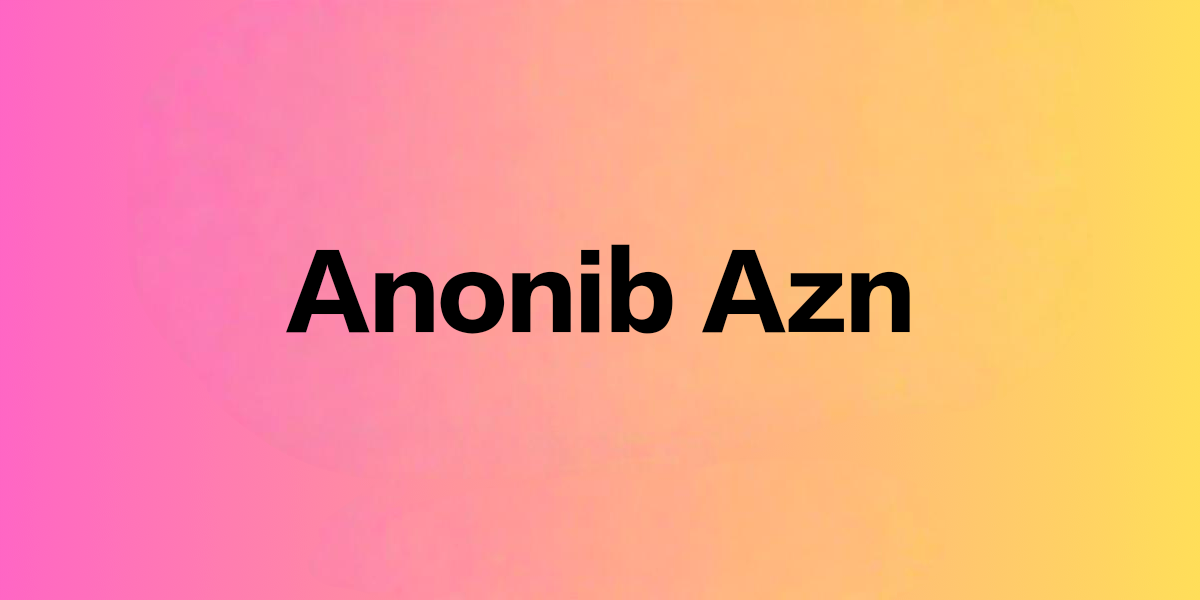Introduction
In the vast landscape of the internet, niche communities form around every imaginable interest. One such community that garnered attention in recent years is AnonIB AZN. While controversial, it reflects a broader digital subculture shaped by anonymity, ethnicity-based groupings, and unregulated content sharing.
What Is AnonIB AZN?
AnonIB, a now-defunct anonymous image board, was divided into regional and themed boards. The “AZN” board was specifically dedicated to content involving individuals of Asian descent. Although AnonIB in general operated under a veil of secrecy, AZN content often stirred unique interest due to its targeted nature.
This part of the site became a hotspot for users posting and requesting images, often under questionable legality and morality. Content was typically user-submitted or requested based on geographic location, ethnicity, or personal affiliations. The board allowed posts with minimal moderation, which sparked ethical debates and legal scrutiny.
The Appeal of Anonymity
The primary allure of AnonIB was its anonymous structure. Users felt empowered to share, discuss, and request content without the fear of exposure. This sense of invisibility not only facilitated a raw form of communication but also led to abusive behavior and exploitation.
For many, AnonIB AZN was a place where the typical social rules did not apply. However, this freedom came with a cost. Victims of leaked or unauthorized images often found themselves powerless, their privacy completely stripped away.
Cultural Focus and Targeting
Unlike general boards, AZN content fixated on racial identity. The label “AZN” typically referred to East and Southeast Asian individuals. Unfortunately, this focus often resulted in racially motivated fetishization.
Requests commonly included detailed location information, such as “Singapore AZN” or “Toronto AZN,” turning the board into a geographic hunt. Instead of celebrating cultural identity, the board reduced individuals to content categories.
Over time, this targeted focus caused significant harm within Asian communities. The board objectified a specific racial group, reinforcing harmful stereotypes and fostering digital harassment.
Rise and Fall of AnonIB
Although AnonIB thrived in the shadows for many years, its activities eventually attracted legal action. Several takedowns of the site were led by international authorities and privacy advocates.
In 2018, major investigations led to its shutdown. Law enforcement uncovered massive breaches of privacy, including non-consensual content and image theft. As a result, many users faced prosecution, and multiple victims began pursuing civil remedies.
Even though AnonIB AZN no longer operates, mirror sites and clones occasionally surface, attempting to revive the platform’s legacy. However, they often fail to reach the scale or impact of the original site.
Impact on Privacy and Consent
Perhaps the most critical lesson from AnonIB’s legacy is the ongoing issue of digital consent. Victims often had their lives turned upside down—careers derailed, reputations damaged, and mental health shattered.
The lack of consent in content sharing isn’t just a violation of personal boundaries; it constitutes a serious ethical and legal offense. Countries are now moving toward stronger laws to combat image-based abuse, but enforcement remains challenging across borders.
Communities like AnonIB AZN serve as cautionary tales. They reveal how unchecked digital spaces can evolve into centers of exploitation when governance is absent.
Modern Day Alternatives and Ethical Shifts
Post-AnonIB, internet culture is slowly moving toward accountability. Forums and boards are implementing tighter user regulations, while major platforms use AI moderation tools to detect harmful content in real-time.
While underground forums still exist, users are growing more aware of digital footprints. Platforms that promote privacy without encouraging exploitation are gaining popularity.
Education on digital ethics and privacy rights is also becoming widespread. People now understand the long-term consequences of posting or requesting sensitive content online.
Community Backlash and Social Reflection
Communities once involved in platforms like AnonIB AZN are increasingly facing social reckoning. Former users now acknowledge the harm caused by participating in such environments.
Conversations about race, privacy, and respect have become more mainstream. These shifts mark a step toward building healthier online communities.
It’s not enough to shut down harmful platforms. Society must cultivate awareness and empathy—particularly regarding marginalized groups who are often targeted online.
Conclusion
AnonIB AZN was a byproduct of the internet’s early unregulated nature. While it provided users a space to act anonymously, it also exposed the darker side of internet freedom. Its legacy continues to serve as a reminder of the need for digital responsibility.
Today, the conversation has shifted. Respect, consent, and accountability are at the forefront of how users engage online. With proper education, enforcement, and platform policies, the harmful practices once seen on AnonIB AZN can be prevented from resurfacing.











